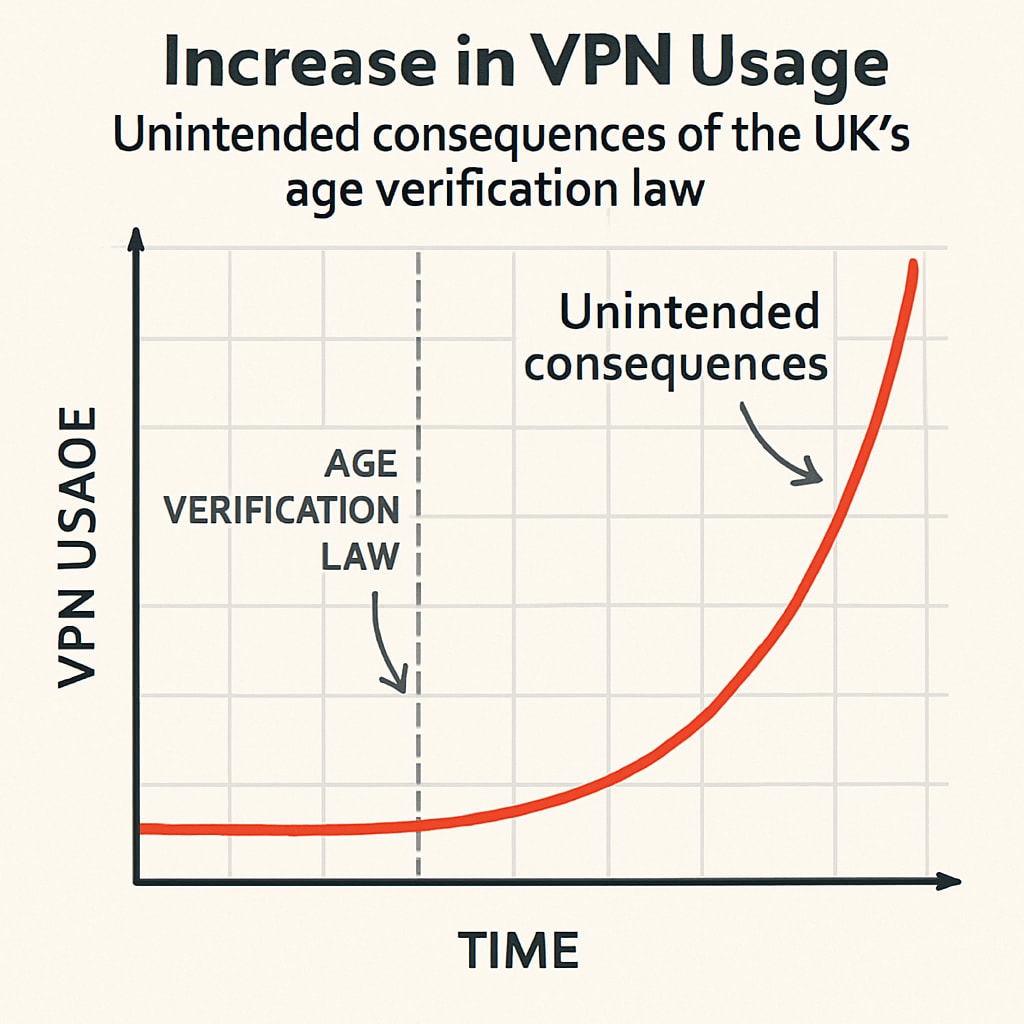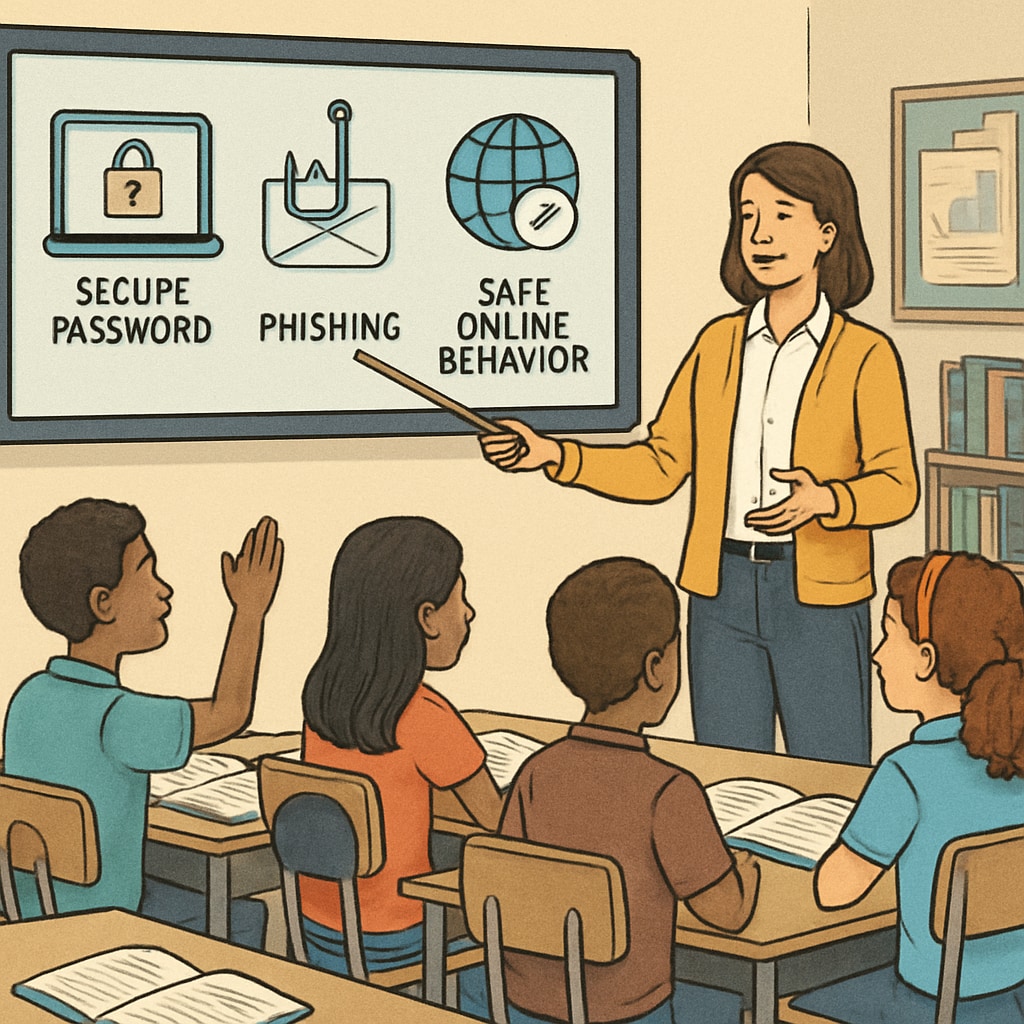The recent implementation of strict age verification laws in the UK has resulted in a dramatic rise in VPN (Virtual Private Network) usage. While these regulations aim to protect minors from inappropriate content, they have inadvertently highlighted gaps in K12 students’ digital literacy and critical thinking skills. This article examines the broader implications of the UK’s age verification law on VPN trends and discusses the need for a more robust approach to teaching responsible online behavior in schools.
Why the UK Age Verification Law Matters
The UK’s age verification law, designed to restrict access to adult content, requires users to verify their age through official documentation or third-party systems. While its intent is commendable, the law has led to unintended consequences. One of the most notable is the sharp increase in VPN usage, particularly among tech-savvy teenagers who see it as a tool to bypass restrictions. VPNs allow users to mask their location and browse the internet anonymously, effectively sidestepping the age verification process.
This surge in VPN adoption raises critical questions for educators and policymakers. Are students aware of the risks associated with VPN usage, such as exposure to unsafe servers or data breaches? Moreover, are they equipped with the digital literacy skills necessary to navigate the internet responsibly?

Digital Literacy and the Role of Education
The rise in VPN usage underscores a pressing issue: the need for comprehensive digital literacy education. Digital literacy involves not only technical skills but also the ability to evaluate online content critically, understand privacy concerns, and make ethical decisions online. Unfortunately, many K12 students lack these essential skills.
To address this gap, schools should consider integrating the following into their curricula:
- Online Safety Training: Teach students about the risks of VPN usage, including potential exposure to malware and data theft.
- Critical Thinking Exercises: Encourage students to question the reliability of online information and understand the long-term consequences of their digital actions.
- Privacy Awareness: Educate students on the importance of safeguarding personal data and the potential risks of sharing sensitive information online.
Additionally, collaboration between schools, parents, and policymakers is essential to create a supportive environment where students can safely navigate the digital world.
Balancing Protection and Empowerment
While the UK’s age verification law aims to protect children, it also highlights the importance of empowering young people with the skills to make informed online decisions. Merely restricting access to certain websites is not a long-term solution. Instead, a balanced approach that combines regulation with education is key.
For example, schools could simulate real-world scenarios where students must decide whether to use a VPN or engage with potentially harmful content. Such exercises not only teach practical skills but also encourage ethical decision-making. Moreover, introducing age-appropriate discussions about online privacy and digital rights can help students understand the broader implications of their online behavior.

The Way Forward
The rise in VPN usage following the UK age verification law serves as a wake-up call for educators and policymakers. It is a reminder that digital literacy should be a core component of K12 education. By equipping students with the skills to navigate the online world responsibly, we can not only protect them from immediate online dangers but also prepare them for a future where digital competency is indispensable.
In conclusion, while laws like the UK age verification mandate are well-intentioned, they must be complemented by robust educational initiatives. Only through a combination of regulation and education can we create a safer and more informed digital environment for the next generation.
Readability guidance: This article uses clear headings, short paragraphs, and lists to enhance readability. The content avoids jargon and maintains an engaging tone suitable for educators and policymakers. Transition words like “for example,” “however,” and “as a result” are used to ensure a smooth flow of ideas.


